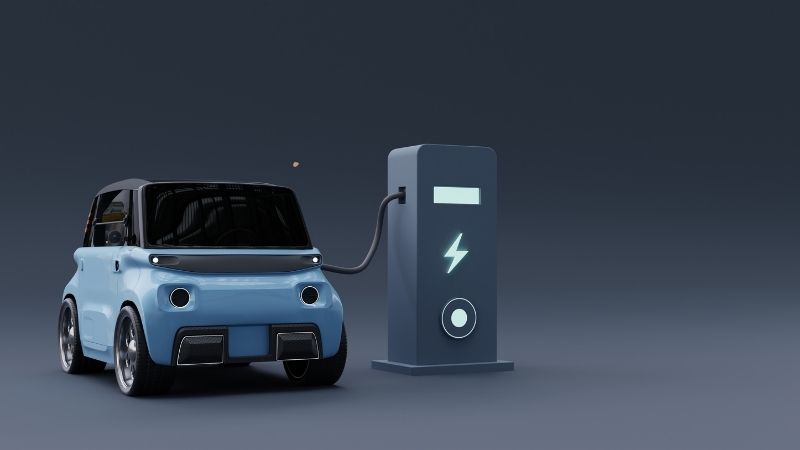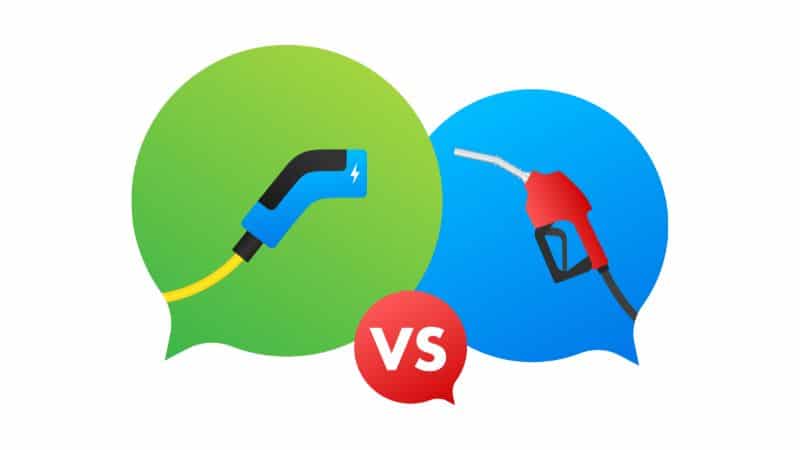As the world becomes more environmentally conscious, the automotive industry has been striving to produce cars with reduced emissions and greater fuel efficiency. This has resulted in the rise of hybrid cars as a viable alternative to traditional petrol-fueled vehicles. While both types of cars have their advantages and disadvantages, there are key differences between Hybrid Car Vs. Petrol Car that makes each appealing to different types of drivers.
Hybrid Car Vs. Petrol Car Running Costs
One of the main considerations when deciding between a hybrid car and a petrol car is the running costs. When it comes to running costs, hybrid cars have a clear advantage over petrol cars. While hybrids tend to be more expensive to purchase upfront, they often have lower fuel costs in the long run due to their increased fuel efficiency.
In addition to lower fuel costs, hybrid cars also tend to have lower maintenance costs than their petrol counterparts. This is because the electric drive system used in hybrids is much simpler and more reliable than traditional internal combustion engines. As a result, fewer moving parts require regular servicing or replacement.
Despite these benefits, it’s worth noting that hybrid cars do come with some additional upfront costs compared to petrol vehicles. For example, they may be more expensive to purchase initially due to the advanced technology used in their design. However, over time these higher upfront costs can be offset by the savings you’ll make on fuel and maintenance expenses.
Ultimately, the decision between a hybrid car or a petrol car will depend on individual driving habits and preferences. It’s important to research and compare all of the associated costs before making a purchasing decision.

Hybrid vs Petrol vs Electric
Hybrid cars are becoming more popular among car buyers, but are they truly better than traditional petrol-powered vehicles? One of the main advantages of a hybrid car is that it combines an electric motor with a gasoline engine, which means it can run on both power sources. This results in improved fuel efficiency and lower emissions compared to standard petrol cars. However, hybrids tend to be more expensive than their petrol counterparts.
On the other hand, petrol cars have been around for over a century and remain the most common type of vehicle on the road. They offer reliable performance and are generally less expensive upfront compared to hybrids or electric vehicles. However, they contribute significantly to air pollution due to CO2 emissions.
Electric vehicles are also gaining popularity as an alternative to petrol-powered cars. They have zero emissions and offer smooth and quiet rides thanks to their electric motors. Although they come with higher upfront costs compared to petrol or hybrid vehicles, EVs save money on fuel in the long run since electricity is cheaper than gas.
Petrol vs Hybrid vs Diesel Car
Hybrid cars are a relatively new entry in the automobile market compared to petrol and diesel cars. The biggest advantage that hybrid cars offer is their fuel efficiency. They use both an electric motor and a gasoline engine to power the car, which results in better mileage. On the other hand, petrol-powered vehicles have been around for over 100 years and remain popular among consumers due to their affordability.
While hybrid cars may be more expensive than traditional petrol vehicles, they can save drivers money on fuel costs in the long run. According to studies, a hybrid car can save up to $3,000 per year on fuel expenses compared to traditional petrol cars. Additionally, hybrids produce fewer emissions than their gas-only counterparts.
Actually, every car has its own advantages and disadvantages when it comes to deciding between a petrol vs hybrid vs diesel car. One must take into account variables such as cost-effectiveness over time as well as environmental impact while choosing what best suits their needs.
Resale Value Of Hybrid Car Vs. Petrol Car
When it comes to the resale value of hybrid and petrol cars, there are several factors to consider. Hybrid cars tend to have a slightly higher resale value than their petrol counterparts due to their fuel efficiency and lower emissions. However, this can vary depending on the specific make and model of the car.
The age and condition of the car also play a significant role in determining its resale value. A well-maintained petrol car may hold its value better than an older or poorly maintained hybrid. It’s also important to consider any additional features or technology that may affect the resale value, such as advanced safety features or entertainment systems.
Ultimately, when deciding between a hybrid and a petrol car based on resale value, it’s essential to do your research and compare models within your budget. While hybrids may generally hold their value better over time, other factors such as maintenance costs may outweigh any potential financial benefits in the long run.
Hybrid Car Vs. Petrol Car – Which Is Better?
When it comes to choosing between hybrid and petrol cars, it is important to consider a few factors such as fuel efficiency, performance, cost, and environmental impact. Hybrid cars use both an electric motor and a traditional combustion engine while petrol cars solely rely on gasoline-powered engines.
Hybrid cars are known for their excellent fuel efficiency due to the combination of electric power and gasoline engines. On the other hand, petrol cars tend to have better performance with higher horsepower engines and faster acceleration. However, this often results in lower fuel economy compared to hybrid vehicles.
In terms of cost, hybrid vehicles tend to be more expensive upfront than petrol cars due to the technology involved in their production. However, over time they can save you money on fuel costs as they require less frequent refueling than petrol vehicles. Additionally, hybrids often have a longer lifespan due to their superior engineering which includes regenerative braking that creates energy when stopping or slowing down.
FAQ: (Frequently Asked Questions)
Q. Are hybrid cars better than petrol?
Hybrid cars have become increasingly popular over the last few years, primarily because of their fuel efficiency. They are a great alternative to traditional petrol-powered vehicles as they produce fewer emissions and have better fuel economy.
Hybrid cars use a combination of an electric motor and a petrol engine, which work together to power the vehicle. The electric motor is used for low-speed driving while the petrol engine kicks in at higher speeds when more power is needed.
Q. What are the disadvantages of a hybrid car?
One of the main disadvantages of owning a hybrid car is its higher upfront cost compared to traditional petrol cars. Hybrid vehicles are more expensive due to their advanced technology and sophisticated components, such as electric motors and batteries. This means that potential buyers may have to pay more for a hybrid car than they would for an equivalent petrol car. Another disadvantage is that although hybrids have better fuel economy compared to petrol cars, they may not be as efficient in real-world driving conditions.
Q. Should I buy a petrol car in 2024?
Hybrid cars have been gaining popularity over the years due to their environmental friendliness and fuel efficiency. However, petrol cars are still a viable option for those who prioritize affordability and convenience. In 2023, it ultimately depends on your personal preferences and needs.
If you are someone who drives long distances frequently, then a petrol car may be more suitable for you as it usually has a longer range. Additionally, petrol cars tend to be cheaper upfront compared to hybrid vehicles which can come with a higher price tag.
Conclusion
Hybrid car vs petrol car: Deciding which car is right for you ultimately comes down to personal preference and lifestyle. If you prioritize saving money on gas and reducing emissions, a hybrid car may be the better choice. On the other hand, if you enjoy the performance and power of a traditional gasoline engine, a petrol car may be more suitable.
It’s important to consider your daily commute and driving habits when making this decision. Hybrid cars tend to perform better in stop-and-go traffic, while petrol cars are known for their speed on highways. Additionally, if you frequently travel long distances or prefer road trips, a petrol car may offer more convenience with its readily available fuel stations. Ultimately, both types of cars have their benefits and drawbacks. It’s up to you to weigh these factors and determine which option aligns best with your needs.


